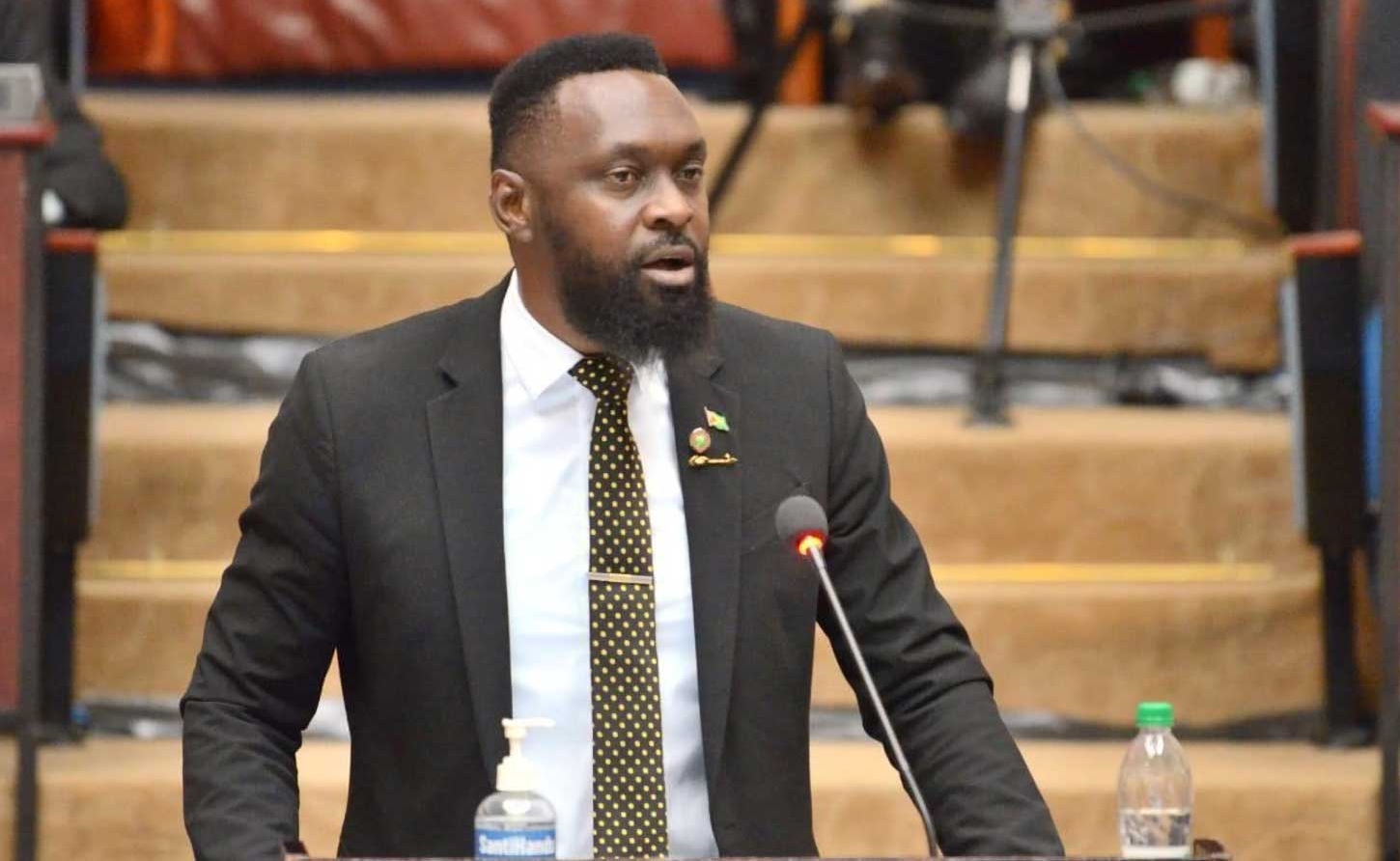GUYANA | Guyana's Parliament: When Words Become Weapons

GEORGETOWN, GUYANA, JANUARY 25, 2025 - In Guyana's National Assembly, the word "corruption" has become contraband. So too has "loot," "dishonest dealings," and virtually any term that might cast shadows on government conduct.
This linguistic lockdown came to a head during a recent budget debate when Opposition Chief Whip Christopher Jones found himself engaged in an absurd game of verbal gymnastics, his microphone repeatedly silenced as he attempted to address allegations of government misconduct.
The parliamentary showdown, which unfolded during Jones's 20-minute budget presentation, revealed the growing tensions between democratic discourse and institutional control in Guyana's legislature.
When "corruption" was declared verboten, Jones pivoted to "dishonest dealings." When that too was forbidden, he tried "loot," only to face another interruption. Finally, at a colleague's suggestion, he settled on "runnings" – though even this compromise drew the Speaker's disapproval.
Speaker Manzoor Nadir's crackdown extended beyond mere vocabulary policing. When Jones attempted to discuss allegations involving ministers' family members and shell companies receiving contracts, he was accused of "imputing on honorable members."
The censorship reached its zenith when Jones referenced a Vice News documentary concerning Vice President Bharrat Jagdeo – prompting Nadir to swiftly cut his microphone.
The absurdity of the restrictions was laid bare when Jones attempted to quote United Nations Human Rights Committee Member Laurence Helfer's direct statements about "public frustration" over uninvestigated corruption allegations. Even these internationally-sourced remarks faced resistance.
The situation took on an almost Kafkaesque quality when Minister of Governance Gail Teixeira responded that no investigation had occurred because no police report was filed – seemingly ignoring that citizens were expected to report such allegations to a police force itself facing corruption claims at its highest levels.
"What is happening in Guyana's Parliament flies in the face of Parliamentary democracy," Jones later told Kaieteur News. Unlike other jurisdictions, where such prohibitions typically apply only to direct accusations against individual MPs, Guyana's restrictions appear to ban discussion of systemic issues entirely.
More troubling still, these linguistic constraints seem arbitrarily imposed, with words not officially listed as "unparliamentary" being banned on the Speaker's whim – a burden disproportionately borne by opposition members.
The parliamentary saga took a new turn last week when Opposition Member of Parliament Amanza Walton-Desir launched a pointed challenge to these colonial-era restrictions. "The timing couldn't be more critical," she argued, as the nation approaches crucial budget debates. "We're bound by linguistic handcuffs that belong in a museum, not a modern parliament."
Her challenge has exposed a curious paradox at the heart of Guyana's legislature: while the government acknowledges the need to modernize these prohibitions, the Speaker's office has doubled down on their enforcement, creating what Walton-Desir describes as a "counterproductive" barrier to meaningful debate.
In a nation grappling with rapid economic transformation and growing international scrutiny, this linguistic battleground has become a powerful symbol of the tension between democratic oversight and institutional control.
-30-
